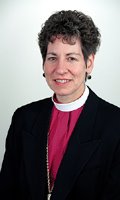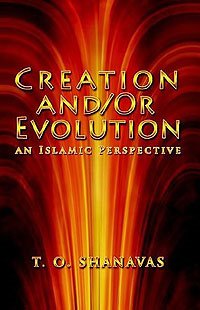Evolution Creation Debate |
||
Friday, July 21, 2006Scopes Monkey Trial
On this day in 1925, John T. Scopes, a Tennessee biology teacher, was tried for violating the Butler Act, a 1925 state law banning the teaching of evolution. This so-called "Monkey Trial" became a flashpoint for debate among religious scholars and scientists as well as the general public. Scopes was found guilty and fined $100, though the verdict was later reversed. Despite the outcry stemming from the case, the Butler Act was not repealed until 1967.
Monday, July 17, 2006Emergence Enters the Evolution/Creation Debate
Emergence refers to nature's tendency to organize unpredictable and complex things out of simple components. Examples include: carbon atoms forming a diamond, water coalescing into snowflakes, neurons creating a memory.
Unlike intelligent design, which argues that only a supernatural architect could construct the universe, emergence scientists, hailing from physics, chemistry, and life sciences, say that since the big bang, just about everything has demonstrated an innate bent for processing information to create complex systems. The Institute on Religion in an Age of Science will explore the subject at its 53rd annual Star Island Conference, Saturday, July 29, to Saturday, August 5, 2006 on Star Island, New Hampshire. Tuesday, June 20, 2006Katharine Jefferts Schori Katharine Jefferts Schori, Bishop of Nevada, was elected June 18 to head the Episcopal Church. She becomes the first female head of an Anglican denomination anywhere in the world. Katharine Jefferts Schori, Bishop of Nevada, was elected June 18 to head the Episcopal Church. She becomes the first female head of an Anglican denomination anywhere in the world.She was raised a Roman Catholic, is a qualified pilot and graduated in marine biology with a doctorate specialization in squids and oysters. On the Evolution Creation debate, she said: "Evolution most definitely should be taught in school. It's a well-tested premise and the best model that fits the data available. Creationism can't make that claim. I believe in the creeds. They say God created the world, but they don't say how." Wednesday, June 14, 2006Language of God A new book The Language of God: A Scientist Presents Evidence for Belief makes the case for God and for science. Its author is Dr. Francis Collins, head of the US National Human Genome Research Institute. In the book Dr. Collins considers and rejects several positions along the spectrum from atheism to young-earth creationism, including agnosticism and Intelligent Design. Instead, he proposes an active, caring God who created humankind through evolutionary processes. The book will be published in July by Simon and Schuster. Wednesday, May 03, 2006Teaching Evolution at Christian Colleges
The online version of Science & Theology News says that U.S. Christian college and university professors are teaching evolution with rigor equal to their colleagues at secular colleges.
However, the article does say evolution is not treated as a purely academic pursuit. Quoting Curt Blankespoor, a Biology professor at Calvin College, Grand Rapids, MI. "It’s not strictly an intellectual process, I’m engaging not only minds, but hearts." more Friday, April 14, 2006Portsmouth UK Genesis Expo The Creation Science Movement have opened a free creation themed exhibition in Portsmouth, England. The organization started in London in 1932 as the "The Evolution Protest Movement". They believed then and continue to believe that there is scientific evidence against evolution and supports the biblical account of creation. They publish and distribute the quarterly journal 'Creation', pamphlets, books, video and audio tapes. They also provide speakers to lecture at universities, schools and churches in the UK. Tuesday, April 04, 2006Creation and/or Evolution: An Islamic Perspective In his book Creation and/or Evolution: An Islamic Perspective' T.O.Shanavas writes that for Muslims modern science is less problematic than for Christians. There is much agreement between Qu'anic revelation and scientific discovery. In his book Creation and/or Evolution: An Islamic Perspective' T.O.Shanavas writes that for Muslims modern science is less problematic than for Christians. There is much agreement between Qu'anic revelation and scientific discovery.'Both maintain that the universe originated from nothing and evolved into its present state over a long period of earthbound time. They agree that the universe is expanding and that at some future, it will collapse into a single entity or singularity where existing physical and chemical laws become nonexistant, mathematics would not add up, and numbers become infinite' T.O.Shanavas was born India and is a naturalized U.S citizen. He is a practicing pediatrician in Michigan. He is a member of Islamic Center of Greater Toledo, Ohio and the vice president of Islamic Research Foundation, Louisville, Kentucky. His book is self-published through Xlibris Corporation. Wednesday, March 22, 2006Archbishop of Canterbury The Archbishop of Canterbury, Dr Rowan Williams, spiritual leader of the world's 77 million Anglicans has said that only evolution should be taught in science classes. In an article published March 21 in The Guardian newspaper Dr Williams says also teaching creationism diminishes rather than enhances the biblical story of the origins of the world. The Archbishop of Canterbury, Dr Rowan Williams, spiritual leader of the world's 77 million Anglicans has said that only evolution should be taught in science classes. In an article published March 21 in The Guardian newspaper Dr Williams says also teaching creationism diminishes rather than enhances the biblical story of the origins of the world. "I think creationism is ... a kind of category mistake, as if the Bible were a theory like other theories ... if creationism is presented as a stark alternative theory alongside other theories I think there's just been a jarring of categories ... My worry is creationism can end up reducing the doctrine of creation rather than enhancing it," he said. Friday, March 17, 2006Shroud of Turin
What do science and scientists have to do with the Shroud of Turin, an old piece of cloth which folklore describes as being the very linen that wrapped the body of Jesus as it laid in the tomb over 2000 years ago?
This article shows the extent to which some scientists will ignore scientific evidence to ensure that scripture is not historically accurate, and that all physical phenomena can be explained by natural, not supernatural, causes. You can post your views here. Wednesday, March 01, 2006The Clergy Letter Project
In the fall of 2004 Michael Zimmerman, a professor of Biology and currently Dean, College of Letters and Sciences, University of Wisconsin Oshkosh, along with some Wisconsin clergy prepared a statement for clergy to sign in support of teaching evolution. It currently has more than 10,000 signatures of clergy from across the United States at The Clergy Letter Project. The letter reads:
"Within the community of Christian believers there are areas of dispute and disagreement, including the proper way to interpret Holy Scripture. While virtually all Christians take the Bible seriously and hold it to be authoritative in matters of faith and practice, the overwhelming majority do not read the Bible literally, as they would a science textbook. Many of the beloved stories found in the Bible - the Creation, Adam and Eve, Noah and the ark - convey timeless truths about God, human beings, and the proper relationship between Creator and creation expressed in the only form capable of transmitting these truths from generation to generation. Religious truth is of a different order from scientific truth. Its purpose is not to convey scientific information but to transform hearts. "We the undersigned, Christian clergy from many different traditions, believe that the timeless truths of the Bible and the discoveries of modern science may comfortably coexist. We believe that the theory of evolution is a foundational scientific truth, one that has stood up to rigorous scrutiny and upon which much of human knowledge and achievement rests. To reject this truth or to treat it as 'one theory among others' is to deliberately embrace scientific ignorance and transmit such ignorance to our children. We believe that among God's good gifts are human minds capable of critical thought and that the failure to fully employ this gift is a rejection of the will of our Creator. To argue that God's loving plan of salvation for humanity precludes the full employment of the God-given faculty of reason is to attempt to limit God, an act of hubris. We urge school board members to preserve the integrity of the science curriculum by affirming the teaching of the theory of evolution as a core component of human knowledge. We ask that science remain science and that religion remain religion, two very different, but complementary, forms of truth." ArchivesJuly 2005 August 2005 September 2005 October 2005 November 2005 December 2005 January 2006 February 2006 March 2006 April 2006 May 2006 June 2006 July 2006 Links |
||